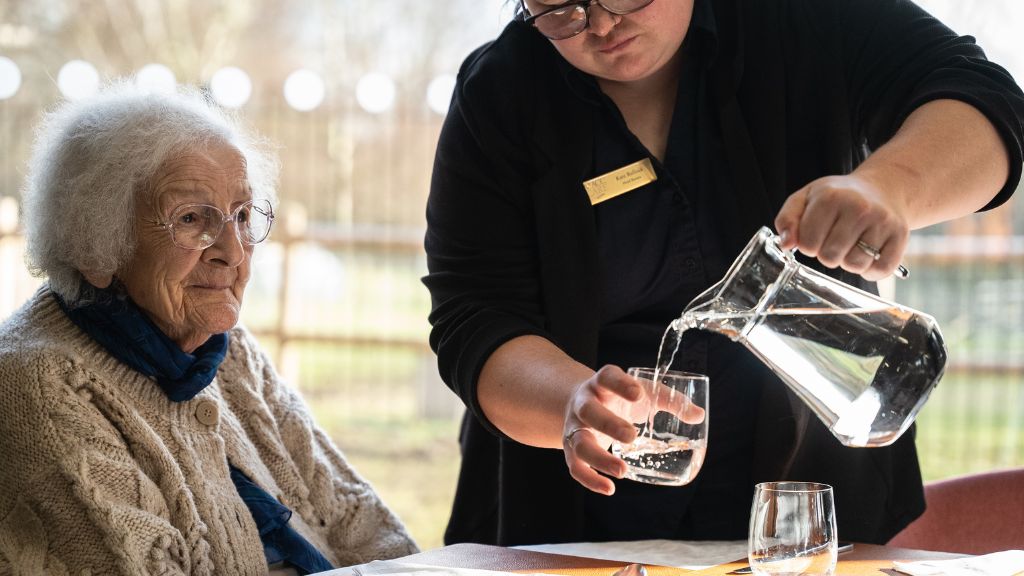Unlock possibilities

Louise Blezzard, founder and chief executive of high-end care provider Venelle outlines how dementia care in the home is changing
This September, as World Alzheimer’s Month comes around again, it feels timely to consider how support for people living with dementia has shifted, particularly within home care.
With diagnoses in the UK continuing to rise – almost half a million recorded by NHS England Digital in early 2025 – home care providers are being challenged to evolve rapidly. The task is no longer only about safeguarding and comfort. It’s equally about enabling a life rich in meaning and connection.
Here are some of the ways dementia care at home has moved forward in 2025:
A collaborative model
Modern dementia care is increasingly a partnership rather than a top-down process. Families, professional carers and the person themselves all have a voice.
This way of working allows decisions to be better informed, where families provide insight into a lifetime of preferences while professionals bring medical expertise and practical strategies.
Anchored by our medical director, Dr Simrat Marwah, our care planning blends both worlds. As she explains: “Clinicians understand how dementia affects the body and brain, but families hold the essence of who that person has always been. The best care weaves the two together.”
Home environments that reassure
The physical setting plays a huge role in how someone with dementia feels day to day. A home adapted with care can reduce stress, limit confusion and keep people safe.
Simple changes such as clear labelling at entry points, brightly contrasting colours on doors or bathrooms, clutter-free bedrooms and well-lit spaces that avoid shadows, can transform daily living. In kitchens, easy-to-use appliances and clear signs make independence more achievable. Thoughtful design doesn’t just keep someone secure; it helps them feel anchored in their own space.
Care that starts with stories
Dementia support is increasingly built around who someone is, not just what they need. Life history, interests and routines are central in shaping care that feels authentic and personal.
One client of ours, a former entrepreneur, had always thrived on leadership and responsibility. As dementia advanced, that drive seemed to fade. We explored what might reignite it – and the answer came through rugby, his lifelong passion. By arranging regular visits from a former professional player, we gave him a space where that sense of confidence and purpose could return. It’s these seemingly small details that help preserve dignity, joy and motivation.
Personalised plans, not templates
Because dementia affects everyone differently, flexible, highly personalised care plans are vital. A tailored approach means building on someone’s history and passions, then adapting these activities as needs change.
That might mean switching from novels to audiobooks for a lifelong reader or adjusting gardening tasks so someone can still enjoy being outdoors safely. By adapting rather than removing activities, we preserve identity and foster independence for as long as possible.
Keeping body and mind active
Movement plays a huge part in quality of life. Regular, manageable exercise can help people with dementia improve fitness, reduce anxiety and feel more positive.
Earlier this year, for instance, we launched the ‘Wimbledon Watchers Kit’ with a physiotherapy-at-home service. Designed around chair-based activities, it gave clients a way to exercise while enjoying the excitement of the tennis tournament. Initiatives like this show how creativity can turn everyday events into wellbeing opportunities.
Travel made possible
Exploring new places or returning to favourite destinations can spark memories and support wellbeing. Yet for many, dementia has made travel feel out of reach.
To counter this, we’ve developed tailored ‘Travel Support’ packages. These help clients plan and enjoy trips – from family visits to overseas holidays – while ensuring they feel safe, supported and cared for every step of the way. With the right help, travel becomes not just possible but genuinely enjoyable again.
Beyond limitations
World Alzheimer’s Month is a reminder to move past old ideas of what living with dementia means. With the right kind of care people can still learn, connect, travel and enjoy meaningful experiences.
At Venelle, we believe dementia care should never be about restriction. It should be about unlocking possibilities. That belief will continue to shape how we support families and individuals now, and in the future.




